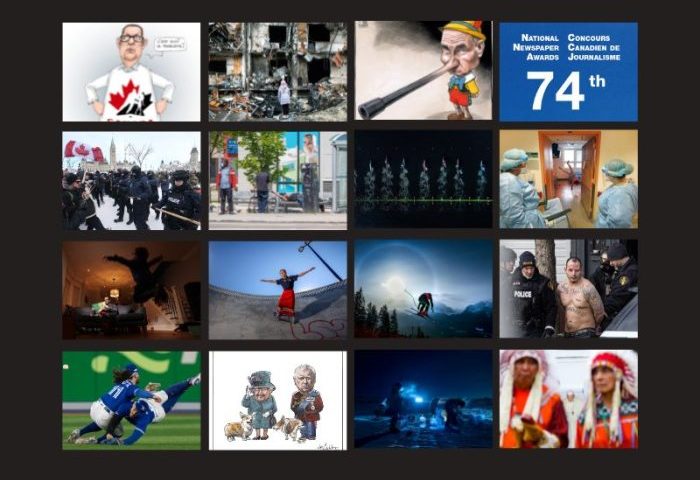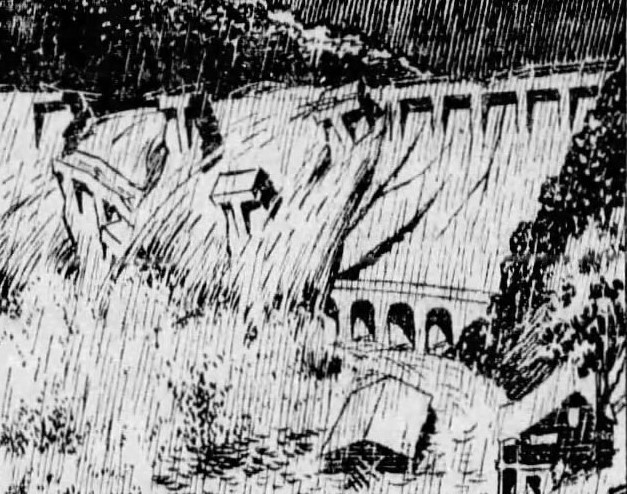CSotD: Revisiting Iraq
Skip to commentsLet me lead off today’s retrospective by admitting I don’t have dates on all of these cartoons and they may well not be in chronological order, nor were they all preserved in the best possible format for use here.
However, I do know that Peter Schrank’s 9/11 cartoon should be first, because I used it in my high school presentations initially to indicate that there were alternatives to weeping Statues of Liberty, and later to note that, in the immediate wake of the attacks, the world was largely on our side.
Until we misplayed the hand. Nobody, I think, objected to our going into Afghanistan, given that the Taliban had sheltered Osama bin Laden in return for the assassination of the head of the Northern Alliance on the eve of the World Trade Center attacks.
How we handled it, and our subsequent invasion of Iraq, were another matter. But there was a moment when the world’s horror was to our advantage.
However, Chinese cartoonist Luojie wasn’t buying the Bush administration’s claims that Iraq was affiliated with al Qaeda or that Saddam had weapons of mass destruction, and accused Bush and Cheney of whipping up war fever with false claims.
Meanwhile, Bob Englehart warned that entering this war on terrorism would be a whole lot easier than exiting it.
And Ann Telnaes criticized the major networks for their uncritical acceptance of administration claims and for the administration’s growing insistence that war was not only inevitable but desirable.
For those not old enough to remember, it’s important to point out that the TV coverage following 9/11 involved not just patriotic backdrops on news sets but an almost universal donning of US flag lapel pins. Even in the emotional aftermath of those attacks, some journalists wondered how the networks and local stations would determine when it was time to take off the pins and return to neutral coverage.
It turned out to be an excellent question.
Tom Tomorrow, in those early days of the Internet, found his main audience in the still-thriving pages of the alternative press, and he was unsparing in his cynical satire of administration claims and in the acquiescence of the mainstream press to those dubiously sourced assertions.
Even topical comedian Adam Felber took up the pen for a short time to try his hand at political commentary.
W had far less success than his father had had in assembling an alliance to return to Iraq and conclude the regime change GHWB had decided not to pursue, but, as Norwegian cartoonist Herbjørn_Skogstad pointed out, he did get UK PM Tony Blair to ride along on the quixotic mission.
It was a decision that cost Blair and his party dearly in subsequent investigations of the decision.
And the rapid decision in Washington did not, as Tom Toles pointed out, find as rapid a response from the people responsible for carrying it out. One of the first discoveries was that US vehicles were not sufficiently armored to resist improvised explosive devices, despite assurances from Defense Secretary Donald Rumsfeld that everything was just fine.
As young soldiers began to take the burden on the battlefield, Rumsfeld insisted there was no problem, that they were tough and battle-hardened, a claim Toles mocked in a Washington Post cartoon that caught the eyes of the Joint Chiefs and prompted a furious denunciation.
However, any satisfaction Rumsfeld may have gotten from dragging Toles over the Pentagon coals was surely blunted when cartoonists like Jeff Danziger mocked his sensitivity, with depictions like this absurd parody of David Levine’s classic LBJ cartoon.
Nor were cartoonists like Jim Morin content to accept the “Mission Accomplished” photo op that declared the war won before it had barely begun, and while things were not all that sunny back home, either.
Pat Bagley took the soldiers’ side with this memorable response to W’s bravado just as the hell of Iraqi resistance was building momentum and beginning to take lives.
While Telnaes continued to nail fatuous, gullible reporting of heroic propaganda from the front, particularly the over-hyped, largely fictional tale of heroic Jessica Lynch, almost none of which turned out to be based on fact or even on initial misunderstandings of facts.
Rather than being a POW heroically rescued by American forces, it turned out Lynch had been taken to an Iraqi hospital, had her wounds tended to, and then was returned to the Americans by her doctors. But that was on Page Seven, at the bottom. The initial, exciting false reports were Page One and led the TV newscasts.
OTOH, it was good practice for the later heroic reports in Afghanistan when former NFL star Pat Tillman fell to friendly fire and it took his parents a long time and an investigation to pierce the Pentagon’s hero-worshipping coverup.
Telnaes also took up her pen when Judith Miller was — as Telnaes drew it — hung out to dry, first for having trusted Pentagon sources on their WMD stories (see Tom Tomorrow, above) and later serving three months in jail to protect her sources when pro-war governmental authorities revealed the identity of a CIA operative as punishment for the agent’s husband’s refusal to play ball with their official version of the facts.
The deeper we dug into the sandpit, more more empty those folders began to seem, as Clay Bennett put it.
Even victories like the elimination of Abu Musab al-Zarqawi, leader of al-Qaeda in Iraq, drew a hearty “So what?” from Bulgarian cartoonist Christo Komarnitski, who did not share W’s triumphant assumption that the beast had been decapitated.
Nor was the skepticism entirely foreign: When a bereaved mother parked herself at the gates of the Bush ranch and the president declined to meet with her, Pat Oliphant turned it into an overall critique both of the true chain of command and the president’s own sense of responsibility.
And it was becoming clear, as Bennett noted, that Iraq was not going to be readily balanced by a makeshift coalition of Kurds, Shiites and Sunnis.
To the point that the once heroic venture began to consistently fail in polls, and, as Toles put it, W began to find faults other than his own for the quicksand in which we found ourselves.





















Comments 6
Comments are closed.